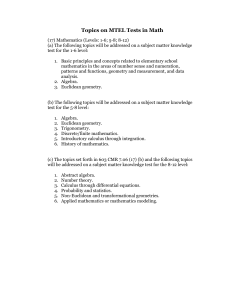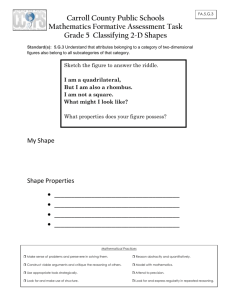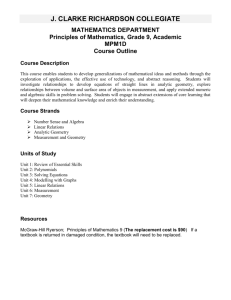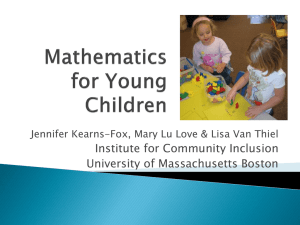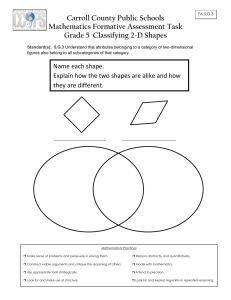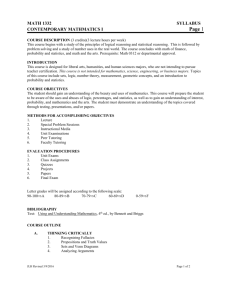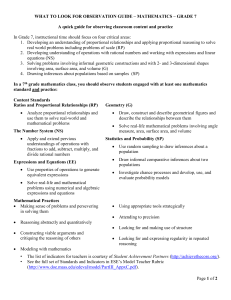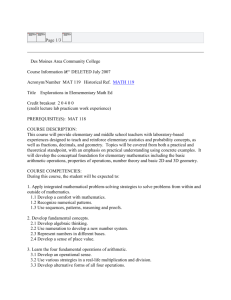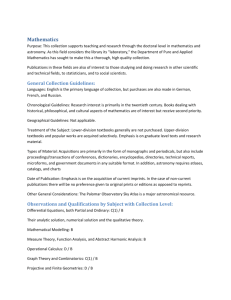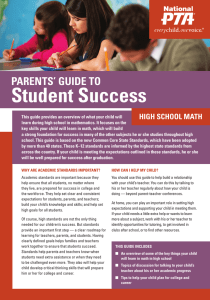SJSU Mathematics Department Course Syllabus
advertisement
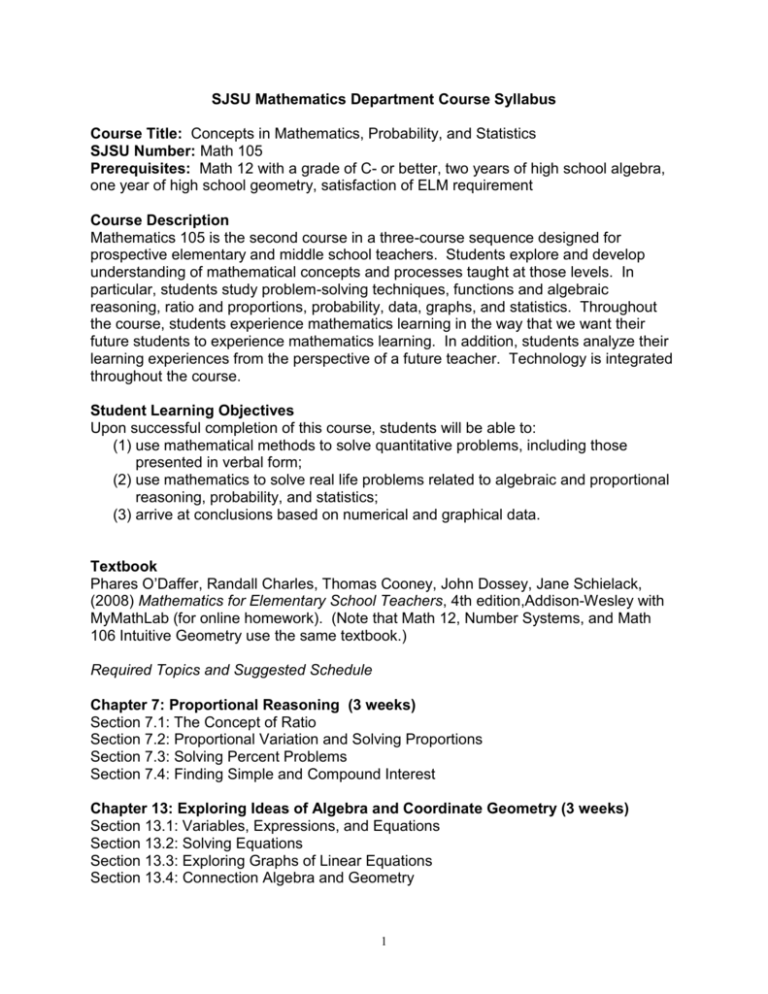
SJSU Mathematics Department Course Syllabus Course Title: Concepts in Mathematics, Probability, and Statistics SJSU Number: Math 105 Prerequisites: Math 12 with a grade of C- or better, two years of high school algebra, one year of high school geometry, satisfaction of ELM requirement Course Description Mathematics 105 is the second course in a three-course sequence designed for prospective elementary and middle school teachers. Students explore and develop understanding of mathematical concepts and processes taught at those levels. In particular, students study problem-solving techniques, functions and algebraic reasoning, ratio and proportions, probability, data, graphs, and statistics. Throughout the course, students experience mathematics learning in the way that we want their future students to experience mathematics learning. In addition, students analyze their learning experiences from the perspective of a future teacher. Technology is integrated throughout the course. Student Learning Objectives Upon successful completion of this course, students will be able to: (1) use mathematical methods to solve quantitative problems, including those presented in verbal form; (2) use mathematics to solve real life problems related to algebraic and proportional reasoning, probability, and statistics; (3) arrive at conclusions based on numerical and graphical data. Textbook Phares OʼDaffer, Randall Charles, Thomas Cooney, John Dossey, Jane Schielack, (2008) Mathematics for Elementary School Teachers, 4th edition,Addison-Wesley with MyMathLab (for online homework). (Note that Math 12, Number Systems, and Math 106 Intuitive Geometry use the same textbook.) Required Topics and Suggested Schedule Chapter 7: Proportional Reasoning (3 weeks) Section 7.1: The Concept of Ratio Section 7.2: Proportional Variation and Solving Proportions Section 7.3: Solving Percent Problems Section 7.4: Finding Simple and Compound Interest Chapter 13: Exploring Ideas of Algebra and Coordinate Geometry (3 weeks) Section 13.1: Variables, Expressions, and Equations Section 13.2: Solving Equations Section 13.3: Exploring Graphs of Linear Equations Section 13.4: Connection Algebra and Geometry 1 Chapter 8: Analyzing Data (3 weeks) Section 8.1: Types of Data Displays Section 8.2: Data Displays that Show Relationship Section 8.3: Describing the Average and Spread of Data Section 8.4: Decision Making with Data Chapter 9: Probability (4 weeks) Section 9.1: Understanding Probability Section 9.2: Connecting Probability to Models and Counting Section 9.3: Simulations Section 9.4: Odds and Long-Term Behavior Section 9.5: Random Variables and Probability Distributions Section 9.6: Permutations and Combinations Miscellaneous Review, quizzes, exams (2 weeks) Total Time Allocated 15 weeks Instructors’ References California Common Core State Standards Supplementary Activities Packet, SJSU Math Education Committee 2
